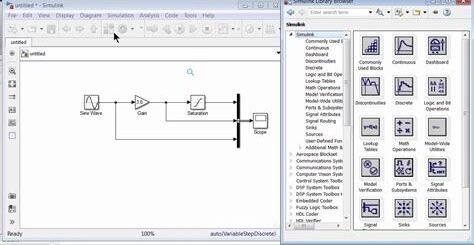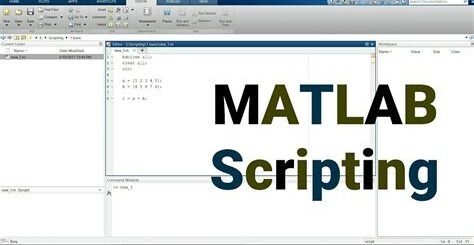Creating Custom Functions and Toolboxes in Matlab
Are you looking to take your MATLAB programming to the next level? In this blog post, we will explore the world of creating custom functions and toolboxes in MATLAB. Understanding how to create custom functions can greatly enhance your MATLAB programming capabilities, allowing you to write reusable code that can be easily integrated into your projects. We will also discuss the numerous benefits of creating custom functions, such as improving code organization, increasing efficiency, and simplifying debugging processes.
Additionally, we will provide a step-by-step guide to help you create your own custom functions in MATLAB, making the process easy to understand and implement. Furthermore, we will delve into the world of MATLAB toolboxes, exploring their creation and utilization. Using toolboxes can greatly enhance your MATLAB experience, providing pre-written functions and algorithms that can streamline your programming workflow. Join us on this journey as we explore the advantages of using MATLAB toolboxes and creating custom functions, and take your MATLAB programming skills to the next level.
Understanding Custom Functions in MATLAB
Custom functions are an essential part of MATLAB programming, allowing users to create their own specialized functions to perform specific tasks. These functions can be tailored to the user’s specific needs and can greatly simplify complex tasks. By using custom functions, MATLAB users can improve the efficiency and readability of their code.
One of the key benefits of creating custom functions in MATLAB is the ability to encapsulate complex algorithms and processes into a single function. This not only makes the code easier to read, but also makes it easier to maintain and update. Custom functions can also be used to abstract away repetitive code, making it easier to reuse and share with others.
Creating custom functions in MATLAB is a straightforward process. Users simply need to define their function using the function keyword, followed by the name of the function and any input or output arguments. Once the function is defined, it can be called like any other built-in MATLAB function, making it a powerful tool for streamlining and simplifying code.
Custom functions in MATLAB can also be made more versatile and powerful by utilizing additional MATLAB features, such as anonymous functions, nested functions, and function handles. These advanced features can greatly enhance the functionality and flexibility of custom functions, allowing users to create more dynamic and robust code.
Benefits of Creating Custom Functions
Custom functions in MATLAB provide several benefits that can greatly improve the efficiency and organization of your code. One of the key benefits of creating custom functions is the ability to modularize your code. By breaking down your code into smaller, more manageable functions, you can improve the clarity and reusability of your codebase. This can be especially helpful when working on large and complex projects, as it allows you to focus on individual components without getting overwhelmed by the entire codebase.
Another benefit of custom functions is the ability to encapsulate complex algorithms or processes into a single function. This can make your code more readable and maintainable, as the details of the algorithm are hidden within the function and can be easily reused without having to understand the inner workings. Additionally, custom functions can improve the overall performance of your code by allowing you to optimize and reuse specific algorithms or processes, leading to faster execution and reduced memory usage.
Furthermore, creating custom functions can enhance collaboration and teamwork by providing a clear and organized structure for sharing and integrating code. This can be particularly beneficial when working in a team environment or when collaborating with others on the same project. Custom functions can also help in debugging and troubleshooting code, as isolating specific functions makes it easier to identify and fix any issues that may arise.
In summary, the benefits of creating custom functions in MATLAB are numerous and can have a significant impact on the efficiency, organization, and maintainability of your codebase. By modularizing your code, encapsulating complex processes, improving performance, and enhancing collaboration, custom functions can greatly enhance the development process and streamline the overall workflow.
Step-by-Step Guide to Creating Custom Functions
Creating custom functions in MATLAB can greatly enhance the efficiency and organization of your code. By creating your own functions, you can simplify complex tasks, improve code readability, and minimize errors. In this step-by-step guide, we will walk through the process of creating custom functions in MATLAB, from defining the function to calling it in your code.
First, start by defining your function using the function keyword, followed by the function name and input arguments in parentheses. Then, write the body of the function, including any necessary calculations or operations.
Next, save your function in a separate .m file with the same name as the function. This allows you to easily access and use the function in other MATLAB scripts. Once your function is saved, you can call it in other scripts by simply using its name followed by the input arguments.
Finally, test your custom function to ensure that it produces the desired results. By following this step-by-step guide, you can create and utilize custom functions to streamline your MATLAB code and improve your overall programming experience.
Creating and Utilizing MATLAB Toolboxes
Creating and utilizing MATLAB toolboxes can significantly improve your efficiency and workflow when working with MATLAB. Toolboxes are collections of functions and MATLAB code that allow you to perform specific tasks or solve particular types of problems.
By creating your own toolbox, you can streamline your work by organizing your custom functions and scripts into a single, easy-to-use package. This makes it easier to share your code with others, and it also allows you to reuse your code across different projects without having to rewrite it each time.
Utilizing MATLAB toolboxes created by others can also be incredibly beneficial. There are many publicly available toolboxes that can save you time and effort by providing pre-written code for common tasks. By incorporating these toolboxes into your workflow, you can take advantage of the expertise and knowledge of other MATLAB users.
Overall, creating and utilizing MATLAB toolboxes can help you work more efficiently, collaborate with others, and access a wealth of resources to enhance your MATLAB experience.
Advantages of Using MATLAB Toolboxes
When working with MATLAB, utilizing toolboxes can provide a range of benefits that can streamline and enhance your programming process. One of the primary advantages of using MATLAB toolboxes is the access to a wide variety of pre-built functions and algorithms that can expedite your coding process. These toolboxes are designed to handle specific tasks or solve particular types of problems, saving you the time and effort of having to develop these functionalities from scratch.
Additionally, MATLAB toolboxes are created and maintained by experienced developers and engineers, ensuring that the functions are well-tested, reliable, and optimized for performance. This can be particularly advantageous for individuals or teams working on projects with tight deadlines, as it allows for the rapid implementation of complex algorithms without the need for extensive testing and debugging.
Furthermore, by using MATLAB toolboxes, you can take advantage of the extensive documentation and support provided by MathWorks. This can be invaluable for individuals who are new to MATLAB or those who are looking to expand their knowledge and skills in specific areas of programming or engineering. The comprehensive resources available for each toolbox can help you understand the underlying algorithms and methodologies, enabling you to make informed decisions and optimizations in your code.
Lastly, the use of MATLAB toolboxes can promote code reusability and collaboration within a team or organization. By leveraging the standardized functionality provided by these toolboxes, you can ensure that your code is consistent, interoperable, and easily understood by your peers. This can be especially beneficial in a professional setting, where efficiency and maintainability are key priorities.


